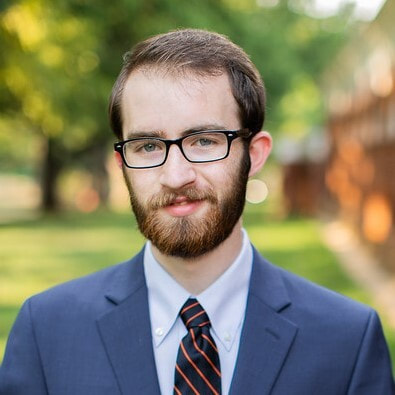|
The COVID-19 pandemic, now entering its third year, has strained mental healthcare infrastructure both across the United States and in Virginia. Mass infection and mortality, economic instability, and the disruption of routines and established modes of community-building have combined to produce a nearly perfect storm of deleterious effects. As of early 2021, the proportion of adults who reported symptoms of anxiety or depression had quadrupled from pre-pandemic levels. According to a Kaiser Family Foundation survey, 36% of adults report that stress or worry relating to the pandemic has negatively impacted their sleep, and 12% of adults say the pandemic has led to increased alcohol or drug use. Even with safe, effective vaccines widely available, the recent Omicron surge serves as a reminder that the pandemic, and its accompanying detrimental effects on physical and mental health, cannot yet be discounted as a top-line public policy issue. Even before the pandemic, Virginia had begun to take steps towards major reforms of the Commonwealth’s creaky mental healthcare system. In 2013, mental and behavioral health became a major statewide policy issue after the tragic wounding of State Senator Creigh Deeds by his son Gus. Gus had struggled with bipolar disorder, but mental health caseworkers were unable to find him a bed in a psychiatric facility within the six-hour limit allotted by law as he suffered a crisis episode. Gus was released from emergency custody, stabbing his father and taking his own life just hours later. The Virginia General Assembly took action later that year by passing regulations that doubled the amount of time that health workers have to secure a facility bed and required state hospitals to accept anyone in need of further evaluation. Through the System Transformation Excellence and Performance (STEP-VA) initiative, spearheaded by Senator Deeds, the Virginia Department of Behavioral Health and Developmental Services (DBHDS) began implementing a “uniform set of required services, consistent quality measures, and improved oversight in all commonwealth communities,” according to NBC29. The program received its first funding in 2017 through an appropriation of $8.9 million to ensure patients who seek care at regional Community Service Boards can be assessed immediately, rather than waiting weeks for the next available appointment. Implementation of the full program continued over the next several years and has done much to ensure that timely and quality mental and behavioral health care is available across Virginia. However, the pandemic has hampered this vital progress by exacerbating existing fault lines and creating new needs. Virginia currently ranks 37th in the nation for access to mental and behavioral health care and 15th in mental illness prevalence, according to Mental Health America. In addition to increased demand for services from the public, several years of crisis and accompanying illness, burnout, and prolonged trauma have reinforced a broad staffing shortage among medical workers overall in Virginia. Almost 30% of all positions in state-run mental hospitals are vacant amid the pandemic, leading to dangerously diminished care services and risks to providers’ ability to safely treat patients. Staff shortages have also threatened the full implementation of the Marcus Alert program. This program was passed in 2020 and aims to reduce the role of law enforcement in responding to mental health crises by creating a triaged crisis response system that incorporates both first responders and behavioral health clinicians. State-level policymakers should take immediate action to fully fund and staff the Marcus Alert system to ensure that Virginians in crisis receive appropriate assistance from first responders and avoid unnecessary use of force by law enforcement responding to behavioral health emergencies. Localities have responded to workforce shortages through a variety of means, such as one-time hiring bonuses for behavioral health workers and new workforce development programs in high schools. However, as analysts have noted, filling Virginia’s mental and behavioral health staffing needs will take several years. Potential solutions to fill the gaps include statewide participation in reciprocity compacts that allow mental health professionals licensed in other states to practice in Virginia, increased funding for residency programs, and state payment of certain fees associated with clinical licensure requirements. Clinical workers in Virginia often pay $10,000 or more in fees for supervision as they work to obtain licenses—a statewide program to assist clinicians with these costs could help ease staffing shortages and ensure greater representation of underserved communities in the behavioral health workforce. Hearteningly, the Commonwealth has shown a willingness to make continued investments in mental and behavioral health. During the 2021 special legislative session, statewide leadership committed millions in state and federal funds from the American Rescue Plan towards these purposes, including $200 million to shore up staffing at behavioral health facilities and $150 million for community-based crisis services. As Virginia moves into a new legislative session and a new year of the pandemic, policymakers should continue to prioritize investments in mental health to ensure all Virginians can receive the care they need.
The views expressed above are solely the author's and are not endorsed by the Virginia Policy Review, The Frank Batten School of Leadership and Public Policy, or the University of Virginia. Although this organization has members who are University of Virginia students and may have University employees associated or engaged in its activities and affairs, the organization is not a part of or an agency of the University. It is a separate and independent organization which is responsible for and manages its own activities and affairs. The University does not direct, supervise or control the organization and is not responsible for the organization’s contracts, acts, or omissions.
0 Comments
Your comment will be posted after it is approved.
Leave a Reply. |
Categories
All
Archives
April 2022
|
ADDRESSVirginia Policy Review
235 McCormick Rd. Charlottesville, VA 22904 |
|
SOCIAL MEDIA |
